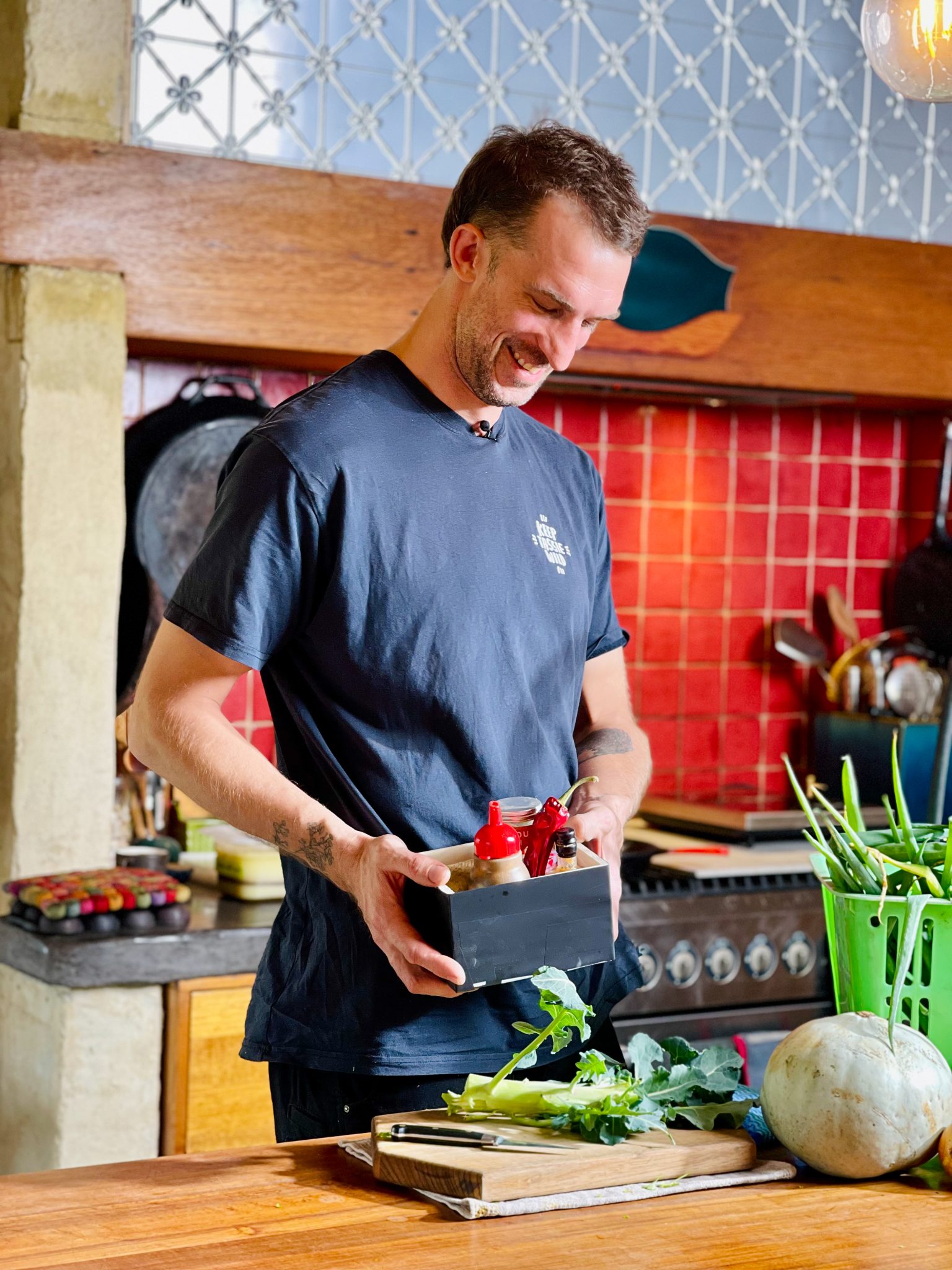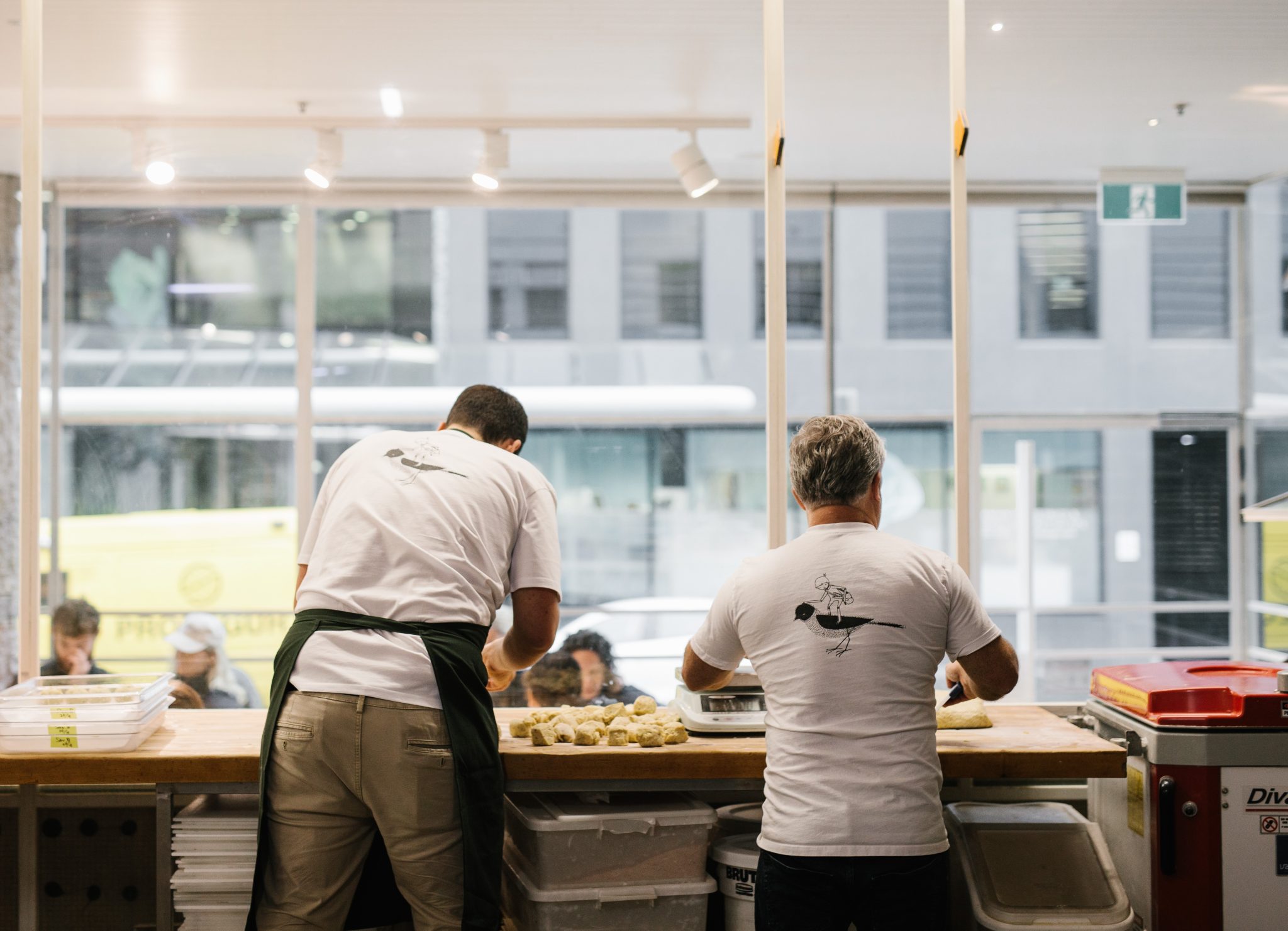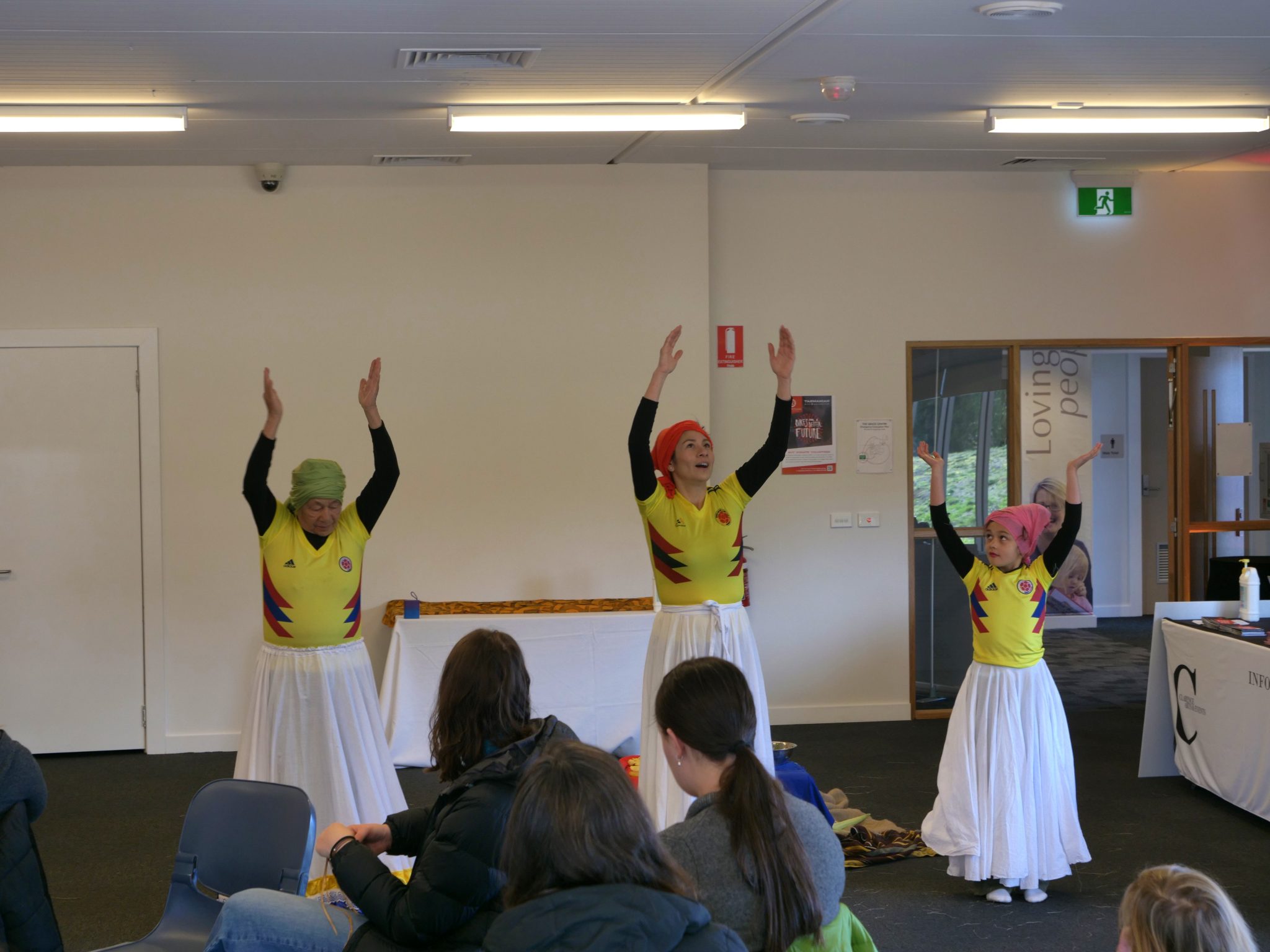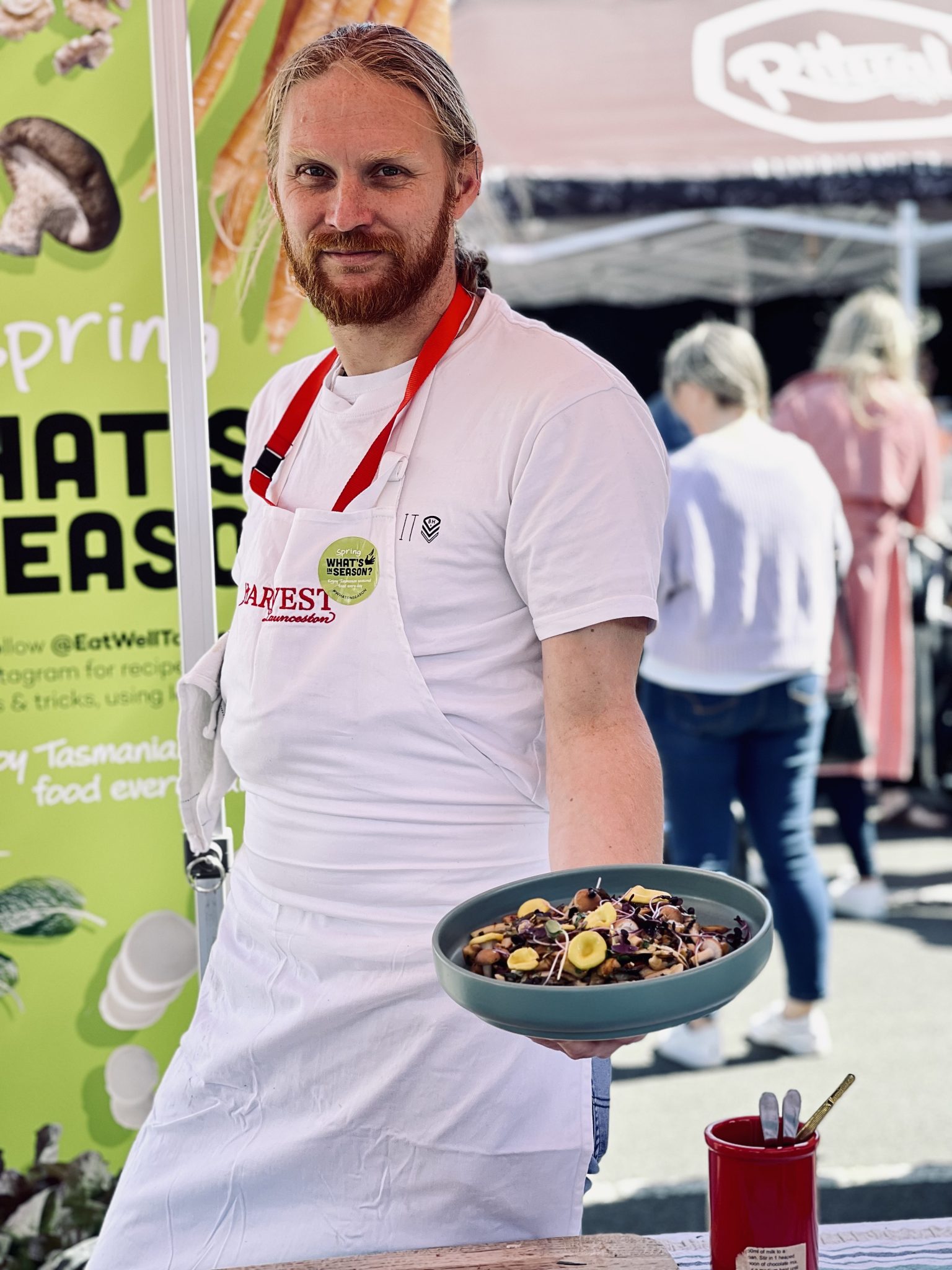We spoke with chef and food waste advocate Tom Wescott as part of Too Good To Waste: A Story about Tasmanian Food.
At your restaurant, Tom McHugos, how did you do the pub thing? How do you get people to try something different, and perhaps appreciating the produce in a different way?
The vegetables had always been a difficult sell for people that are just coming for a pub meal. But also, when you don’t force it down their throat, and you just let that happen naturally – they would often come back and they would start wandering around the menu and saying, “oh, what’s that? Oh, maybe I’ll just have some of that”. Because it tastes good, because the produce is good. They’re more likely to want to investigate further and try something that they’ve maybe never had before.
How would you describe your cooking ethos?
Our approach to food has always been one of community. We would definitely put the producers and the vegetables and the meat growers ahead of technique. I think stylistically my approach to development of dishes and menu items is really just waiting for the food to come from the grower, and then just utilising time restriction. I’ve always found that you are more creative when you pushed.
You’re in a position now where you’re a leading voice in food waste reduction — both in your own workplace but also broader hospitality sector. What are you trying to change?
There’s a whole slew of like education that is missing from not only like a commercial environment, if cooking into the workforce and not know how to deal with food, which is their purpose in life. How can you expect a family of five to know how to look after the vegetables, so they don’t waste in the fridge?
Do you think that a solution to food waste at home is a greater consumer understanding about where their food comes from?
We make time for things that we care about – and food should be paramount. We should care about that a lot. The fact that you can go and buy vegetables from, you know, a nameless tray or a box or comes in a plastic bag, it really separates you from the identity of what it is to be a food grower. And like, we’re all we’re all human, we all have to eat. There’s a whole bunch of people out there that are dedicating their lives to this. Ultimately, the best way to not waste food is to pre-plan your cooking and re-establishing those connections between people through farmers markets or other places which celebrate produce and community.
Where do you start when changing people’s practices and views on the issue of waste. Is it, in fact, starting with explaining that food waste is an issue?
When I hear that the third of the produce is wasted – it’s really upsetting. That is just produce grown in Tasmania, let alone Australia, it’s probably bigger on a world scale. People are aware of food security, and that was made abundantly clear especially since 2020, when supply chains were cut, and people realised that, “hey, we can’t just go out and get whatever we want all the time, whenever we want”. You shouldn’t be like locked in to only using beetroot in winter or autumn, because that’s when they grow well. They grow in summer as well – and they’re amazing. The seasonality of produce can allow you to mitigate waste, because you can just use what is abundant, and ferment and pickle and preserve and dehydrate and actually just eat it.
We were talking about how focusing on reducing food waste is a joyous behaviour — that kind of frees you up when you ‘ditch the rules’ as you say.
Yeah, exactly. My mum used to say, “more speed, less haste”. In my mind, this sort of rolls around whenever I’m processing or doing something that’s a little bit mundane. If you just spend a little bit more time playing with your food and allowing yourself the freedom to actually explore what you’re doing, then there is less opportunity to to waste something.
We’ve talked before about how feels to cook with food grown by people you know and care for. How do you feel about Tasmanian seasonality, and that connection with people too?
I think Tasmania is a really special place to be given the opportunity to cook. If you can, try to focus and eat what’s available right now and seasonal, maybe even growing something yourself – that is truly Tasmanian. It’s within our heritage, and it could be as simple as cooking from your own garden, or your friend’s garden, or your mum’s friend’s garden. We should really celebrate food grown in Tasmania. It really is too good to waste and there’s no need to be looking elsewhere for it.




